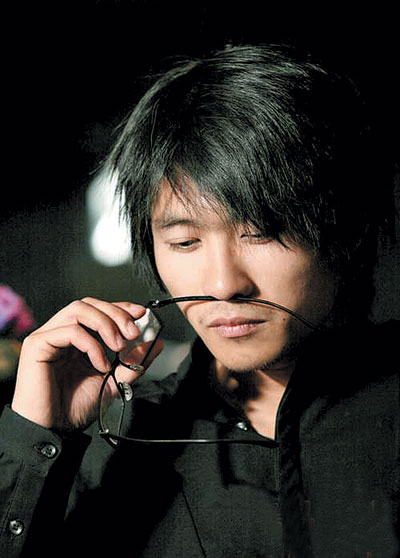|

Wang Yuanyuan
cheekywang@hotmail.com
SOME netizens have provided new “evidence” to support claims that Han Han, a popular young Chinese writer and blogger, is not the original author of some of his works.
The netizens found that three of Han Han’s most famous blog posts were first posted by his father, Han Junren, on an anonymous blog at Sina.com a few minutes before they were posted on Han’s blog.
“Several of Han Han’s articles, including ‘Discussion on Revolution,’ which was posted on his Sina blog was first posted on a blog called ‘fjfh6602 Sina My 2011’ at 5:28 a.m., Dec. 23, 2011 and later appeared on Han’s blog at 6:03 a.m. that day,” a netizen, identified as Soso said Monday on Tianya.com, the country’s largest online forum. It was later discovered that the anonymous blog belonged to Han Junren.
Several other netizens used their computer skills to track back all the deleted articles on Han Junren’s blog and their findings supported Soso’s accusation.
When Han Junren published the article, he intended to enter his son’s blog but signed into his own account and published the article on the “fjfh6602” blog by mistake, according to the accusers. This was discovered by a netizen called “Xiyouwei,” and Han Junren deleted the article from his own blog immediately.
Meanwhile, some netizens also found minor but interesting differences between the two versions of “Discussion on Revolution” posted on the father’s and son’s blog. For example, in the “fifh6602” version, it said “today’s situation is the result of choices made by our fathers,” but the sentence was changed to “today’s situation is the result of choices made by our grandfathers.”
“Of course Han Junren had to make the change. Han Junren’s father’s generation was Han Han’s grandfather’s generation,” an unidentified netizen joked.
Peng Xiaoyun, who blogs about celebrities, confirmed that “fjfh” was how one would type “Han” when using a certain input method for Chinese characters.
The evidence has sparked widespread discussion since it was posted online Monday, but neither Han Han nor his father have responded to the new accusations.
Some celeb netizens, who supported Han, said this could not prove anything as Han had sent many “private letters” to chat with his friends and fans through his father’s Sina Weibo. “Many years ago, he also wrote articles and published on his father’s blog. Many people knew this and he also admitted that on the blog. It is normal for a son to have his father’s Internet accounts and passwords as many young people help their parents, who don’t know much about computers and the Internet, manage their QQ and Weibo accounts,” Luo Yonghong, one of Han’s supporters, said.
The 29-year-old Han is also a well-known racecar driver in Shanghai. He dropped out of high school when he was in Senior 2 because he thought “going to university was meaningless,” and came to prominence after winning a writing competition and publishing the novel “Triple Door.”
His blog on Sina became one of the most popular in the country and he is considered an icon of the post-1980 generation.
Early this year, Fang Shiming — better known by his pen name Fang Zhouzi — posted a series of articles on his microblog accusing Han of publishing his father’s work under his own name.
Fang is renowned for exposing plagiarism and academic fraud.
The online dispute was instigated by a netizen called Maitian, who had accused Han of taking credit for his father’s work but later apologized to Han Han. Fang continued to raise doubts about the originality of Han Han’s writing.
Han sued Fang for defamation at a Shanghai court in January during the Spring Festival.
He also showed a lot of drafts written in his own handwriting to prove his innocence.
The dispute lasted for nearly six months before Han Han stopped commenting on the matter.
However, Fang’s character has also come under attack after netizens found both he and his wife had been involved in plagiarism and fraud when writing their dissertations and academic essays.
Fang later deleted his microblogging account after a quarrel with writer Li Li (better known as Muzimei and Bujia V).
|

